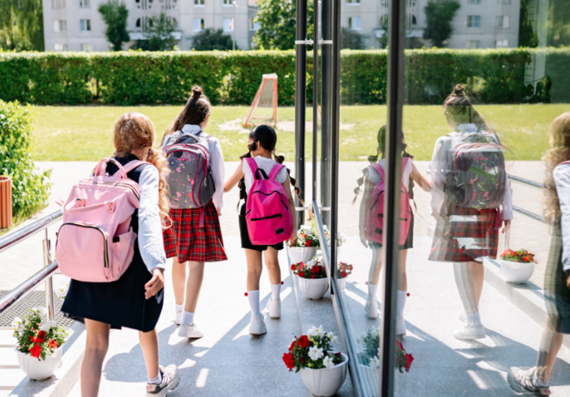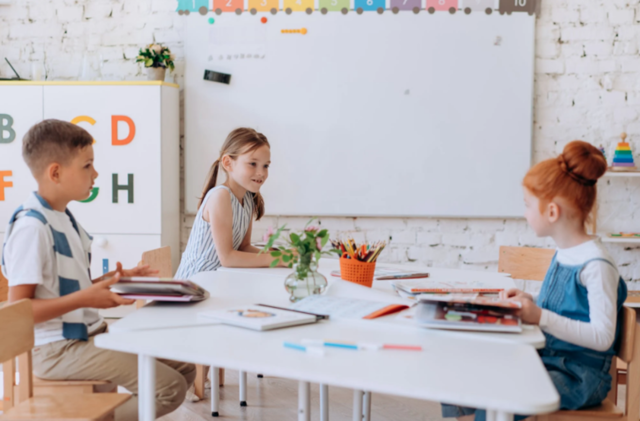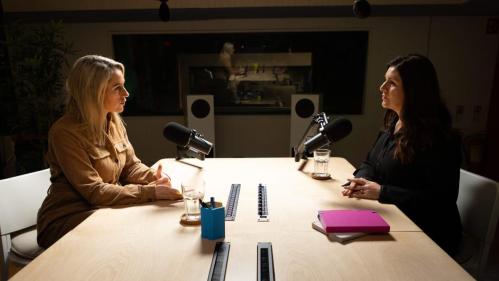Back-to-school time is here and everyone is getting back into the routine, the lunches and the homework.
Colds, flus and other infections all tend to circulate once the back-to-school season rolls around. This year, like last, parents will have the additional concern of the virus that causes COVID-19. It is good to plan for how to find that balance between helping children to learn and have fun in school and keeping everyone as safe as possible from infections including COVID-19.
The following advice is for babies and children up to the end of secondary school.
Symptoms
The most common symptoms of COVID-19 include a high temperature of 38 degrees Celsius or above, a new cough, shortness of breath, and a loss or changed sense of taste or smell.
It is very important to think about this along the lines of what is normal for your child. Some children have a cough from time to time due to underlying asthma and some children have a constant nasal drip (runny nose). It’s important that children don’t miss a lot of their education in the next year because of these kinds of minor symptoms that are normal for them.
It is important to remember that when children and babies get COVID-19, it is usually less serious for them than for adults. However, it is important to know what to do if you think your child has symptoms of COVID-19 or a viral infection.

1. If your child has symptoms
If your child has symptoms that make you concerned, including fever, cough, shortness of breath or altered smell or taste, they might have an acute viral infection like COVID-19 or another virus.
It is important that you isolate your child from other people and arrange a COVID-19 test. Making sure your child is cared for and their needs are met is key. So when we talk about isolation you should think about the best you can practically do while meeting the needs of your child. Some children, especially very young children or children with special needs may not be able to cope with staying in their room on their own but others may cope much better.
Your child should only leave your home to have a test or to see your GP. Phone your GP first. Do not bring your child to your GP surgery unless they ask you to.
2. If your child has COVID-19 or is waiting for a COVID-19 test result
If everyone over 12 years in the house is fully vaccinated, the risk of COVID-19 to others in the house is a lot lower and anyone who is fully vaccinated can go on with life as usual.
In so far as practical while meeting the needs of the child, isolate your child from other people. This means asking them to stay in a room on their own as much as they can. How practical that is depends on where you live and how many people are in the home as well as the child’s needs.
If your child cannot stay in the room on their own, they might be able to wear a mask when they are in a room with other people and the other people may be able to wear a mask. It is also a good idea to make sure there is some ventilation taking account of the weather and comfort.
Anyone in the home who is not fully vaccinated and who is a contact should restrict their movements. This means not going to school, childcare or work until it is safe to do so.
Treat your child at home for their symptoms unless you are worried about them and need advice.
3. If your child is a contact of someone with COVID-19
If your child has symptoms of COVID-19 and is a close contact of someone who has tested positive you should:
- isolate your child from other people immediately
- phone your GP to arrange a COVID-19 test
- Follow the advice for children who have symptoms of COVID-19
The people they live with, including their brothers and sisters, do not need to restrict their movements.
If your child is a close contact and has no symptoms of COVID-19 they should:
- go ahead as normal if they are fully vaccinated (children 12 years and older are eligible for vaccination)
- if not fully vaccinated restrict their movements for 14 days - this includes not going to school. The people they live with, including their brothers and sisters, do not need to restrict their movements even if not fully vaccinated.
- if not fully vaccinated get tested for COVID-19 - a contact tracer will arrange this when they call you
Your child can stop restricting their movements if they:
- have a COVID-19 not detected result 10 days after their last contact with the person who tested positive
- and do not have any symptoms of COVID-19 at that time
Other infections and illnesses
Children often seem to be the ones who get most common winter illnesses like coughs, colds, tummy bugs and the flu.
There's a few reasons why they pick up these infections more easily than others.
A child's immune system is not as developed as an adult’s. If they're in school or in child-care facilities, they are usually indoors a lot more in winter. So they play closer together, meaning germs spread easily.
Most of the time, you don't need to phone your GP if a runny nose or sneezing are your child's only symptoms. Remember that a runny nose or sneezing on their own are more likely to be symptoms of a cold or other viral infection. Read more about coughs, colds and other viral infections in children here.
If a child has any new viral type illness with a fever it is usually best to keep them home until 2 days after their temperature has settled and they start to feel better. Sometimes minor symptoms like a mild cough may last for 1-2 weeks but your child does not need to stay off school for that reason alone
Common infections such as colds and flu, like COVID-19, are viral infections. We know that antibiotics have no effect on viral infections and will not make your child recover any faster. Children’s own immune systems are very good at fighting most viral infections.
Experts state that it is okay for a child to continue in school or childcare as normal unless they:
- have a temperature of 38 degrees Celsius or more
- have other common symptoms of COVID-19 - a new cough, loss or changed sense of taste or smell, or shortness of breath
- have been in close contact with someone who has COVID-19
- live with someone who is unwell and may have COVID-19
- have arrived back into Ireland from certain countries - check gov.ie for the latest travel advice
You can find helpful information about common childhood illnesses and how to treat them here and here
How to prevent your child catching or spreading viral infections
You should encourage your child to do the following:
- to clean their hands properly and regularly
- to always carry tissues and cover their mouth and nose with a tissue if they are coughing or sneezing
- to bin used tissues, then wash their hands
- to cough or sneeze into their bent elbow and then wash their hands, if they don't have a tissue
- not to share water bottles, cups, glasses or anything else they put into your mouth
- not to touch their eyes or nose when unwell to avoid close contact with anyone who you know has cold or flu symptoms
- Some children may find this easier to do than others. Children need to have fun with each other and parents need to have fun with children so there is no good in this becoming a constant worry and a battle of reminders.

Vaccines for your child
Make sure your child’s vaccines or immunisations are up to date. It’s important to ensure your child is up to date with the vaccines they are due. To find out what vaccines your child is due at what age, click here








